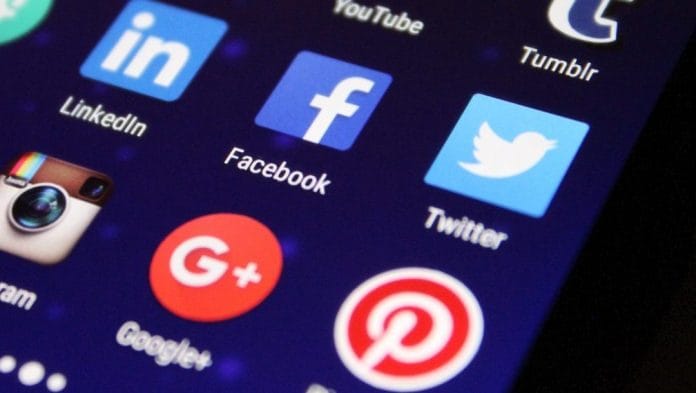Radical action becomes socially acceptable if almost everybody one communicates with holds similar opinions.
There is a direct link between the prevalence of social networks — specifically Facebook and Twitter — and hate crime.
That conclusion, from two recent papers by researchers at the University of Warwick, England, may not in itself require swift policy action. But the methods used to reach it could be used to answer other questions about the relationship between social media and the real world — such as how much Russia’s Facebook and Twitter trolling affects election results.
In March, Karsten Mueller and Carlo Schwarz published a paper showing that hate crimes against Muslims have been concentrated in U.S. counties with high Twitter usage since President Donald Trump’s election.
Before the vote, these areas didn’t have higher rates of hate crime. They were less likely to vote Republican or, indeed, for Trump than counties with fewer Twitter users — and yet these places are where these offences are occurring at a frequency highly correlated with the president’s own tweets on Islam and Muslims, according to the study.
In another paper in May, Mueller and Schwarz showed that the rate of violent crime against refugees in Germany (as reported by two pro-asylum foundations) has been disproportionately higher in municipalities where Facebook enjoys high penetration. There are no official data available on penetration rates, so the researchers, ingeniously, burrowed into the geography of the 32 million “likes” on the German Facebook page of Nutella, the gooey, chocolatey and decidedly non-political spread.
In the German study, anti-refugee posts on the Facebook page of the Alternative for Germany (AfD) party appear to be catalyst for violence. Mueller and Schwarz estimate that without the AfD’s Facebook posts, 13 percent fewer anti-refugee incidents would have happened. During Facebook and internet outages, the rate of hate crime dwindled.
What stands out from Mueller and Schwarz’s work is the rigor with which they investigate other possible reasons for theses correlations.
In the U.S. study, they dug into the entire 26 years of data the Federal Bureau of Investigation has published. They also looked into country-level demographics and voting patterns. In the German study, Mueller and Schwarz did a similar analysis — even going back to Nazi-era atrocities to check if the areas where more hate crimes occur are historically prone to that kind of thing. (They aren’t, it turns out; the correlation is with Facebook use.)
The mechanism that appears to convert Facebook and Twitter use into real-life crime is well-researched by now: filter bubbles.
If almost everybody you communicate with shares certain opinions, it creates an illusion of a consensus that makes radical action feel socially acceptable. The New York Times reporters who gathered anecdotal evidence in the German towns that stood out in the second Mueller-Schwarz study met people laboring under such illusions. I’ve met some in the U.S., too.
There’s not much that can be done about these bubbles. It’s an inherent feature of social media, and so is the absence of moderation.
In the German study, the researchers showed that refugee-related stories, even negative ones, in Germany’s mainstream press aren’t correlated with violence against asylum-seekers. Distracting news events — reported, of course, mainly by traditional media — tend to reduce hate crime levels, too.
Drastic action against hate speech on social media, or against social media companies, would probably help drive down the violence levels. But Mueller and Schwarz don’t recommend it: More evidence of a link between the excesses of today’s social media and real-life outcomes is needed, they say.
That proof is still scarce. But the methods Mueller and Schwarz employed could be used to get more. I asked Mueller if he thought they would work to answer the contentious question of whether the activities of Russian trolls and bots on Twitter and Facebook affected the outcome of the 2016 U.S. presidential election.
“There might be a way to do this, but not necessarily for the 2016 election per se as the main result,” he wrote back. “It should, however, be relatively straightforward to do such a study for approval ratings.”Some of the information needed for such a study — such as country-level Twitter usage data and internet and Twitter disruptions — is already there, according to Mueller. All it would take to complete the study would be some time-series data on bot and troll activity, as well as presidential approval ratings.
“The test would be whether there is a disproportional increase in Trump approvals in areas with many social media users when there is a lot of pro-Trump bot activity,” Mueller wrote. “To establish causality, we could use internet or Twitter disruptions to see whether they mediate this relationship.”
I, for one, await such a study with bated breath. As for Facebook and Twitter, I’ve minimized my usage. That’s the responsible thing to do even if Mueller and Schwarz consider their evidence insufficient for regulatory intervention. – Bloomberg






